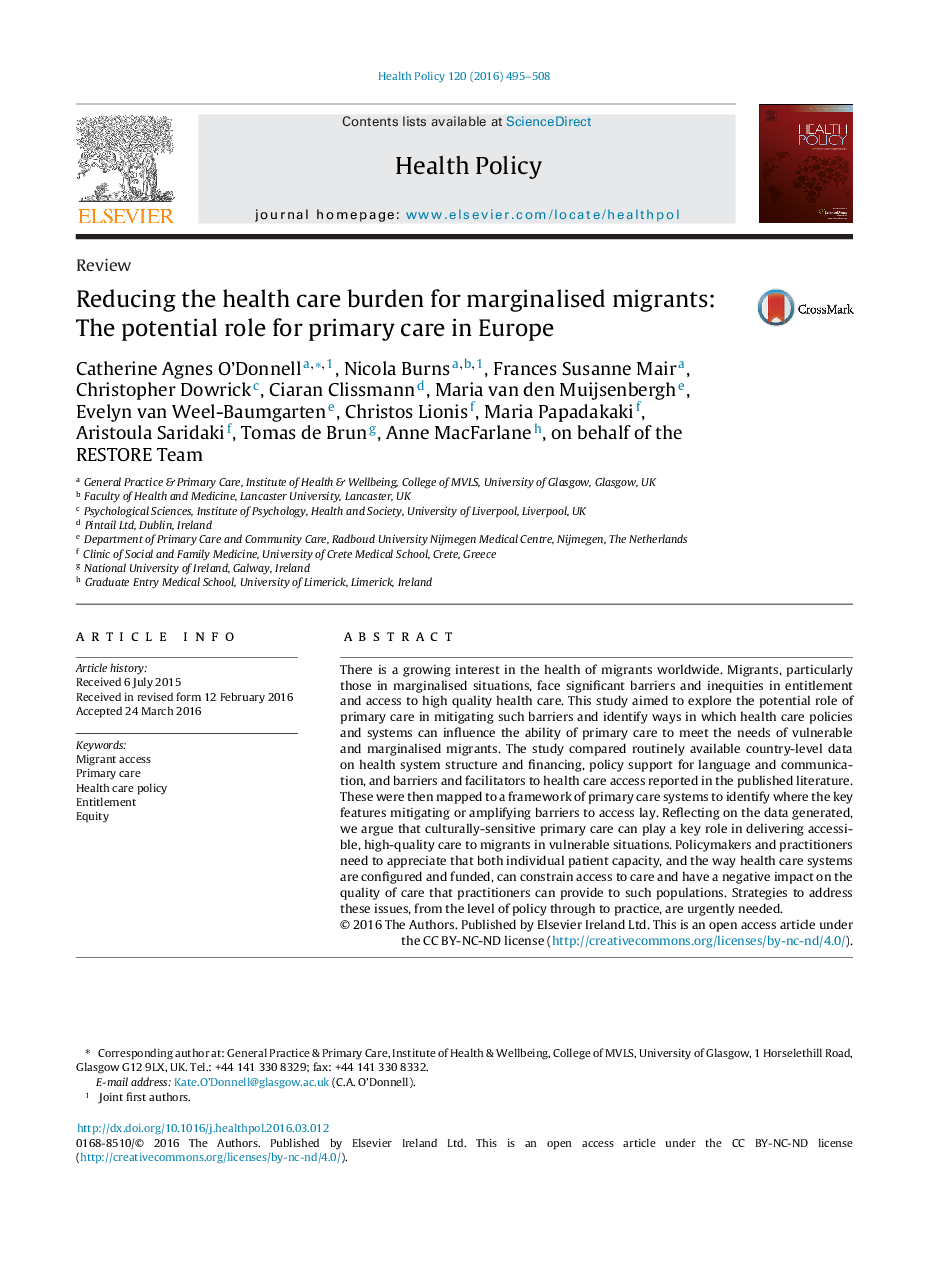| Article ID | Journal | Published Year | Pages | File Type |
|---|---|---|---|---|
| 6238969 | Health Policy | 2016 | 14 Pages |
â¢Increasing diversity and numbers of marginalised migrants a feature across Europe.â¢Entitlement to care, access and use of co-payments add to their care seeking burden.â¢Strong primary care systems may mitigate that burden.â¢External forces, such as austerity, must not be allowed to reduce migrant's access to primary care.â¢Policies improving entitlement and reducing the impact of financial burdens could improve access to primary care for migrants.
There is a growing interest in the health of migrants worldwide. Migrants, particularly those in marginalised situations, face significant barriers and inequities in entitlement and access to high quality health care. This study aimed to explore the potential role of primary care in mitigating such barriers and identify ways in which health care policies and systems can influence the ability of primary care to meet the needs of vulnerable and marginalised migrants. The study compared routinely available country-level data on health system structure and financing, policy support for language and communication, and barriers and facilitators to health care access reported in the published literature. These were then mapped to a framework of primary care systems to identify where the key features mitigating or amplifying barriers to access lay. Reflecting on the data generated, we argue that culturally-sensitive primary care can play a key role in delivering accessible, high-quality care to migrants in vulnerable situations. Policymakers and practitioners need to appreciate that both individual patient capacity, and the way health care systems are configured and funded, can constrain access to care and have a negative impact on the quality of care that practitioners can provide to such populations. Strategies to address these issues, from the level of policy through to practice, are urgently needed.
